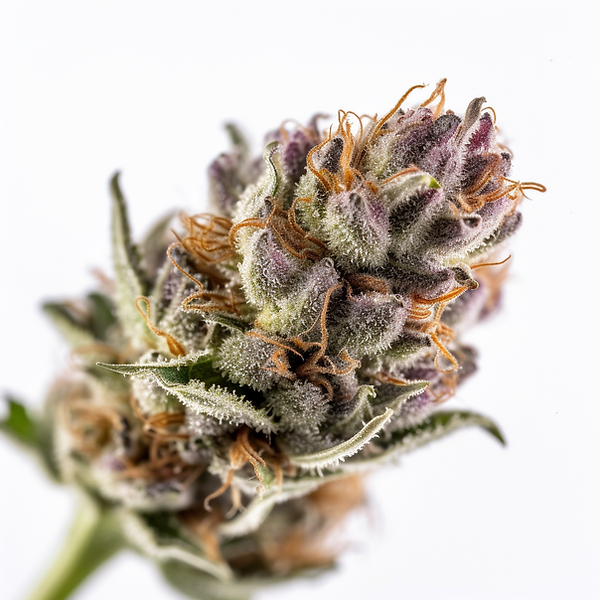Medical Cannabis in the UK: An Informative Guide
The understanding and use of medicinal cannabis has come a long way in recent years, with its benefits recognised in various parts of the world. In the UK, the use of medical cannabis has been subjected to rigorous regulation and control, with a focus on ensuring that this plant-based medicinal product is used responsibly for therapeutic purposes. This guide aims to provide a comprehensive overview of medical cannabis in the UK, the process of obtaining a prescription, its uses, and its implications on public health.

First, it’s essential to understand what medical cannabis is. Medical cannabis, also known as medicinal cannabis or medical marijuana, refers to cannabis-based products or preparations used for medicinal purposes. These include CBD products, cannabis oil, and cannabis-based medicines. The active compounds in cannabis, known as cannabinoids, are primarily responsible for the medicinal benefits.
Cannabis has over 100 types of cannabinoids, but the two most significant are Tetrahydrocannabinol (THC) and Cannabidiol (CBD). THC is the psychoactive component that gives users a ‘high’, while CBD doesn’t have this effect but has several medical benefits. These cannabinoids interact with the body’s endocannabinoid system to regulate bodily functions such as pain, mood, sleep, and appetite.
The use of cannabis-based medicinal products in the UK is governed by the Drugs Regulations. Despite its potential medicinal use, cannabis remains a controlled drug in the UK, making it illegal to possess, supply, or produce without the necessary permissions. However, since 2018, specialist doctors on the General Medical Council’s specialist register have been allowed to prescribe cannabis-based medicinal products under certain conditions.
The NHS, or the National Health Service, is the publicly funded healthcare system in the UK. It provides a range of health and social care services, including prescriptions for medicines. However, an NHS prescription for medical cannabis is relatively rare, as it is considered an unlicensed medicine. This means that it hasn’t gone through the complete testing process that licensed medicines have to ensure their safety and effectiveness.
The decision to prescribe cannabis-based medicinal products rests with the specialist doctor. This decision is usually based on clinical evidence of its effectiveness, potential risks involved, the patient’s medical condition, and the patient’s consent.
Although the General Medical Council does not specify particular qualifying conditions for a cannabis prescription, it is typically considered for patients with severe, treatment-resistant conditions. These may include chronic pain, severe epilepsy syndromes like Dravet syndrome, and severe nausea caused by chemotherapy.

At this point, it is important to mention the Releaf Medical Cannabis Clinic, a leading institution in the field of medicinal cannabis in the UK. They have been instrumental in helping patients access cannabis treatments when other treatments have failed to deliver results.
The Releaf Medical Cannabis Clinic provides a crucial service in the UK, even providing patients with a medical cannabis card that through the innovative use of a QR code, details the patient’s legal prescription and prescribing doctore when questioned by authorities. This card is essential for patients who rely on cannabis for therapeutic purposes, as it legitimises their use and possession of the substance in the eyes of the law. The clinic’s role extends beyond merely issuing the card; they offer comprehensive support to ensure that patients can confidently present their cannabis prescription when required by authorities, thereby avoiding legal issues while managing their health conditions with cannabis-based treatments.
Apart from the NHS, private prescriptions for medical cannabis are also available in the UK. Private prescriptions differ from NHS prescriptions as they are not subject to NHS pricing regulations and are usually more expensive. The private route is often considered by patients who cannot obtain an NHS prescription due to the stringent regulations.
After obtaining a prescription, the next step is acquiring the medicinal cannabis product. Dispensaries are the authorised establishments that provide medical cannabis products to patients. They must follow rigorous standards to ensure the safety, quality, and efficacy of the products they provide.
Cannabis-based medicinal products come in various forms, including oils, capsules, sprays, and more. The choice of product often depends on the patient’s medical condition and the specialist doctor’s recommendation. For instance, CBD oil is often recommended for chronic pain and neuropathic pain, while cannabis oil might be recommended for severe epilepsy conditions.
The process of prescribing cannabis-based medicinal products in the UK is carefully regulated. The Chief Medical Officer and the Advisory Council on the Misuse of Drugs (ACMD) provide guidance on this. They recommend that cannabis-based medicinal products should only be prescribed when there is clear, published evidence of benefit, and other treatment options have been exhausted. The guidance, however, is not exhaustive, and the final decision rests with the specialist doctor.
The UK Medical Cannabis Registry, maintained by Drug Science, a leading independent centre for research on drugs, plays a crucial role in tracking and monitoring the use of medical cannabis. This registry helps document the efficacy and safety of medical cannabis products, which can aid in future research and policy development.
Despite the legalisation of medical cannabis, recreational cannabis remains illegal in the UK. Recreational cannabis refers to the use of cannabis for pleasure or leisure rather than medical treatment. The misuse of cannabis can lead to several health risks, including dependency, mental health problems, and impaired coordination.
Cannabis use, whether for medical or recreational purposes, must always be guided by a clear understanding of the potential risks and benefits. Smoking cannabis, for instance, is generally discouraged because of the potential harm to the lungs and the risk of addiction.
Research into the health benefits of cannabis and its compounds is ongoing. Several clinical trials are underway in the UK and globally to understand better the potential benefits and risks of cannabis-based medicinal products. These trials are crucial in providing robust, scientific evidence that can guide the use of these products.
Cannabinoids, including synthetic cannabinoids, are being studied for their potential in treating various health conditions, including chronic pain, epilepsy, nausea and vomiting caused by chemotherapy, and multiple sclerosis. Early research has shown promising results, but more comprehensive studies are needed.

Patient experience plays a significant role in understanding the real-world effectiveness and potential side effects of cannabis-based medicinal products. Patients are encouraged to share their experiences with their health care provider, which can be instrumental in improving treatment strategies and patient care.
In conclusion, the landscape of medical cannabis in the UK is complex and evolving. The medicinal use of cannabis products shows promise in treating several health conditions, but it is not without risks. As such, it is essential that patients discuss the potential benefits and risks with their healthcare provider before initiating any cannabis-based treatment.
Finally, it is important to note that while medical cannabis has potential therapeutic benefits, it should not be seen as a cure-all solution. It is one tool in a broad range of treatment options available to patients and should be used judiciously and under the supervision of a healthcare provider.
The future of medical cannabis in the UK looks promising, with increased research, better understanding, and evolving regulations. However, a careful, evidence-based approach is crucial to maximise the benefits and minimise the risks associated with medical cannabis.
In summary, the use of medical cannabis in the UK is a complex and evolving area. It is crucial for patients and healthcare providers to have access to accurate and up-to-date information to make informed decisions about its use. The Releaf Clinic, in this context, continues to be a leading institution, providing access to this pioneering treatment, guided by evidence, patient consent, and rigorous clinical standards. To compare UK medical cannabis clinics check out Cannabis Access Clinics where real UK patients leave reviews and share their experience enabling you to find the best medical cannabis clinic for your specific medical needs.
